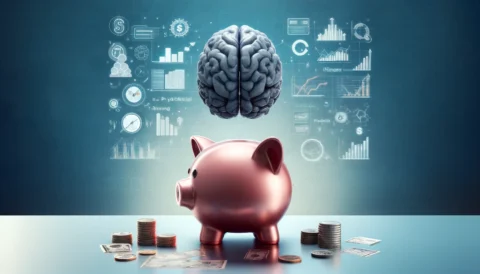Contents
Artificial intelligence (AI) has become a popular topic of discussion in recent years, and for good cause. Artificial intelligence is now used in practically every area, including finance, agriculture, internet shopping, and a variety of consumer apps. According to business researchers, artificial intelligence is expected to add $15.7 trillion to global GDP by 2030. What impact is AI having on the healthcare industry?
What’s next?
Healthcare and practice management are preparing to go all-in on artificial intelligence. ACCORDING TO INDUSTRY EXPERTS, healthcare AI is expected to increase at a compound annual growth rate of 40% by 2021, improve healthcare outcomes by 30-40%, and slash treatment costs in half.
Amazon has essentially restructured the corporation around its AI and machine intelligence efforts, making it a pioneer in user experience innovation. To improve safety, companies ranging from GE to Spotify employ AI for analytics forecasts, data analysis, and equipment maintenance. Microsoft gradually included AI into their product lineup. If you look closely enough at Office 365 or Skype, you’ll see these features.
We’ll go through the four most potent ways AI is altering healthcare, as well as what’s coming up next. Some of the most inventive firms in the world have emerged from the healthcare technology sector, and they are positioned to help people live longer healthier lives. The introduction of software and mobility has mostly propelled the advances, allowing the healthcare development company to digitize many of the pen-and-paper-based procedures and processes that currently stymie service delivery.
We’ve recently seen software becoming significantly more clever and self-contained. Take medical image analysis software solutions as an example. These new skills, which are being researched under the banners of artificial intelligence and machine learning, are speeding up the pace of healthcare innovation.
A major role of AI in the healthcare industry
According to estimates, the AI healthcare development company is expected to increase at a rate of 40% per year by 2021. It will boost outcomes by 40% while cutting treatment costs in half. Analytics prediction, equipment maintenance, safety control measures, and data insights are just a few of the contributions it has made.
It’s transforming the industry, taking it to new heights of precision and accuracy. AI’s superhuman intellect is enabling the development of robots that can operate and perform difficult medical procedures. According to Harvard Business Review, AI orthopedic operations can save up to 40% more money per year than traditional orthopedic surgeries.
The biggest area for AI growth is a healthcare
AI has a lot of potential in healthcare development companies, both during and after the COVID-19 crisis. According to Radcliffe, AI is now genuinely at the forefront of the COVID-19 era, with huge potential in speeding up the race to provide faster access to therapy. These include an AI-enabled digital platform for antiviral drug repurposing for faster access to COVID-19 treatment; identifying AI-enabled drug biomarkers for a potential COVID-19 drug; AI-enabled virtual trials with connected IoT devices to make real-time monitoring of health outcomes.
Robotic surgeries
Robots have had an impact on laparoscopy, neurosurgery, orthopedic surgery, emergency care, and other medical subspecialties since they were first utilized in 1985. AI refers to a group of technologies that are designed to emulate human cognitive functions. AI enables computers to learn and solve problems without the need for human intervention.
AI-assisted robotics in orthopedic surgery can analyze data from pre-operative medical records to physically direct the surgeon’s tools in real-time. Information from previous surgical experiences can also be used to build new and novel surgical approaches. With such technological advancements, surgical robots can be expected to be the future of healthcare. For those interested, you can learn more here in an interesting article about this ever-evolving field.
Helps in improving medical adherence
In the United States, around 55% of adults take at least one prescription medicine, while over 23% of adults take three or more. According to research, the total net spending on prescription medications in the United States has surpassed $309 billion each year. A major percentage of that sum is wasted, as over half of all prescriptions written each year are not taken as prescribed, and in many cases, are not taken at all. Noncompliance leads to over $250 billion in needless costs, accounting for 13% of total annual healthcare spending in the United States.
Custom healthcare development companies can use AI algorithms to figure out which of their patients are at risk of not taking their medications as prescribed.
By incorporating technology into medical centers, the industry is evolving and progressing in ways that no one could have imagined. As people became concerned about the lack of doctors, the poor quality of patient care, and the difficulty in finding reasonable care, technology stepped in and presented a new way to get help: Virtual Care. Around 23% of patients consulted virtual doctors and were satisfied with their treatment. Furthermore, 57 percent of patients are willing to try it out. Technology is bringing convenience and ease to the sector in this way in the Custom healthcare development company.
Early detection and diagnosis
One of AI’s apps most significant potential benefits may be its ability to help individuals maintain excellent health while reducing the number of doctor appointments.
Artificial Intelligence is currently being utilized to diagnose disease and illness in its early stages (for example, cancer). According to the American Cancer Society, around half of all mammograms result in false positives, resulting in wasteful biopsies and a waste of administrative, economic, and technological resources.
The Houston Methodist Research Institute in Texas developed AI software that allows mammograms to be reviewed and translated 30 times faster with 99 percent accuracy, reducing the number of unnecessary biopsies.
Helps in managing the administration
Administrative chores that have nothing to do with patient care account for one-sixth of a doctor’s workload and more than half of a nurse’s responsibilities. Artificial intelligence-assisted technology has drastically reduced administrative burdens, allowing healthcare providers to focus on patient care.
Speech recognition software that allows for voice-to-text transcriptions can help with duties such as filling prescriptions, taking notes on charts, and ordering testing. Business researchers estimate that relieving doctors and nurses of administrative responsibilities may save the healthcare industry $18 billion per year.
Personal genetics
Understanding how DNA affects life is the most important use of AI and ML in genetics. Despite the complete sequencing of the human genome and mastery of the ability to read and change it over the last several years, we still don’t know what much of the genome is saying to us. Genes are continually operating abnormally in the context of other factors such as food, environment, and body kinds. To comprehend how life and biology are influenced, we must first comprehend the language of DNA.
Hyper-targeted drugs
The reduction of both cost and time in drug discovery is another intriguing application of AI/ML in healthcare. New medications take an average of 12 to 14 years to reach the market, with an average cost of $2.6 billion. Chemical compounds are tested against every potential combination of distinct cell types, genetic mutations, and other variables related to a particular ailment throughout the drug discovery process.
Because this is a time-consuming operation, scientists are limited in the number of tests or diseases they can pursue.
Helps in managing new diseases
The majority of diseases are much more complex than a single gene mutation. Although the healthcare system generates vast volumes of (unstructured) data of increasingly higher quality, we previously lacked the requisite gear and software to analyze it and derive valuable insights.
Disease diagnosis is a sophisticated process that takes into account several criteria, including the texture of a patient’s skin and the amount of sugar he or she consumes each day. Medicine has been dominated by symptomatic detection for the past 2,000 years, in which a patient’s illness is diagnosed based on the symptoms they are presenting.
Wrap up
Many people are frightened about the arrival of artificial intelligence. Human beings, as history has shown, can occasionally show a great reluctance to change. Humans are also highly adaptable creatures when they are confident that change will benefit society. Healthcare practitioners are naturally more cautious than ordinary AI enthusiasts due to their proximity to concerns of life and death.
AI can make a significant difference in many places in the healthcare system. However, the most effective use of AI in healthcare has been with tools that complement rather than replace human capabilities. The use of AI and machine learning in healthcare transforms the industry and turns what was once unthinkable into a reality.
Continued access to relevant data is critical for AI/ML to become prevalent in healthcare. The more proprietary data a system can ingest, the more “smart” it becomes. As a result, businesses will go to tremendous lengths to obtain data (which resides in an anonymized format). In February 2016, IBM paid $2.6 billion for the healthcare analytics business Truven Health, primarily to acquire access to its data and insights repository.



